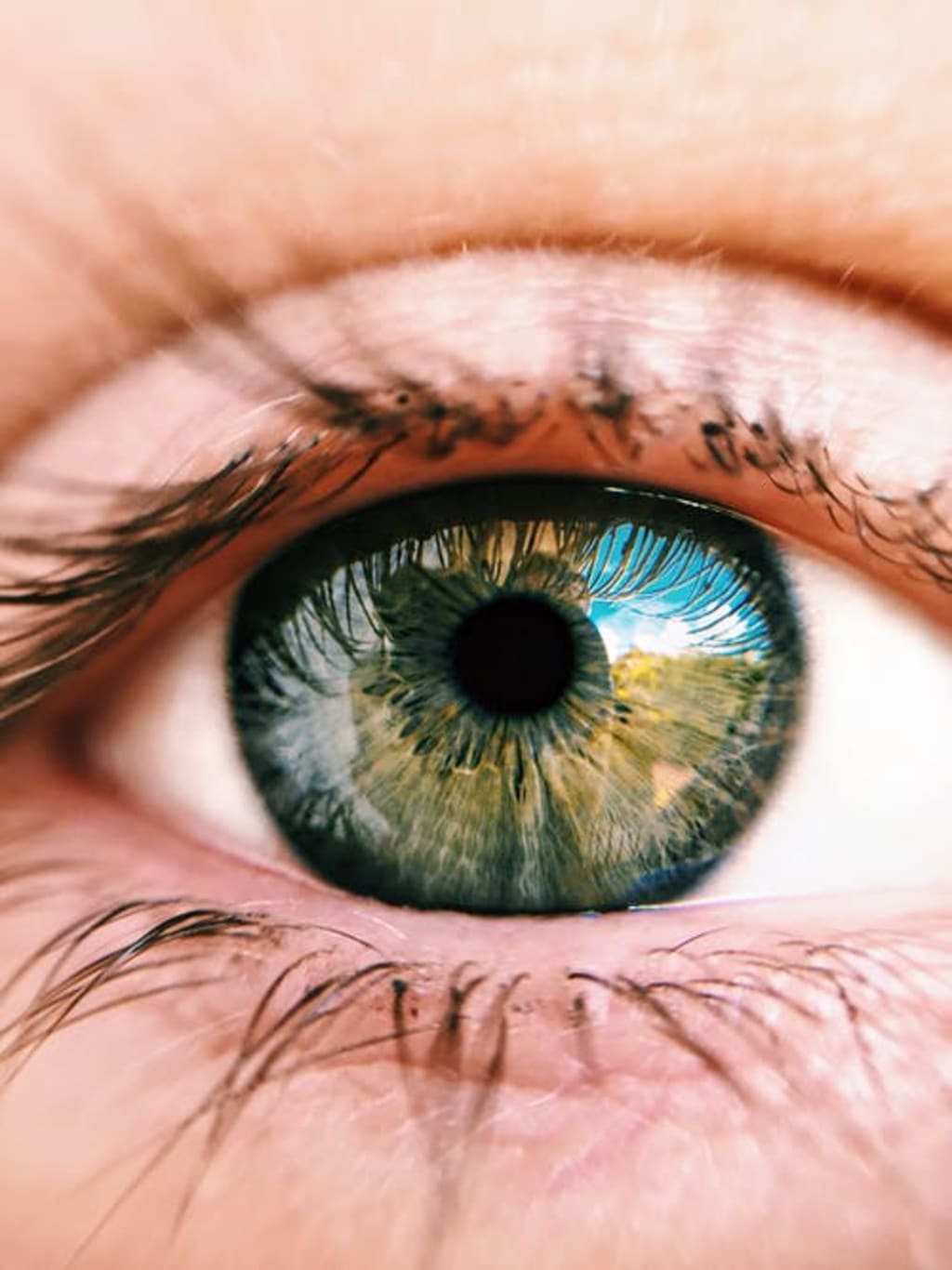
While it's not possible to significantly improve your eyesight beyond the limitations set by genetics, there are several tips and practices you can follow to maintain good eye health and potentially optimize your vision. Here are some tips for better eyesight:
1 - Regular Eye Exams: Schedule routine eye exams with an optometrist or ophthalmologist to monitor your eye health and detect any potential issues early on.
2 - Healthy Diet: Maintain a balanced diet rich in fruits, vegetables, and omega-3 fatty acids. Foods like carrots, leafy greens, citrus fruits, and fish can contribute to good eye health.
3 - Hydration: Drink an adequate amount of water to keep your body and eyes hydrated. Proper hydration can help prevent dry eyes and discomfort.
4 - Protect Your Eyes: Wear sunglasses that block ultraviolet (UV) rays and a wide-brimmed hat when exposed to bright sunlight. Safety goggles or protective eyewear are essential when working with hazardous materials or participating in certain sports activities.
5 - Rest Your Eyes: Follow the 20-20-20 rule to reduce eye strain from prolonged screen time. Every 20 minutes, look away from the screen and focus on an object about 20 feet away for 20 seconds.
6 - Proper Lighting: Ensure that your working environment has adequate lighting. Avoid excessive glare or harsh lighting conditions, as they can strain your eyes.
7 - Avoid Smoking: Smoking can increase the risk of age-related macular degeneration (AMD) and cataracts. Quitting smoking or not starting in the first place is beneficial for overall eye health.
8 - Maintain a Healthy Weight: Obesity and being overweight are linked to an increased risk of certain eye conditions like diabetes and glaucoma. Maintaining a healthy weight through regular exercise and a balanced diet is beneficial.
9 - Limit Screen Time: Prolonged screen time can lead to eye strain and discomfort. Take regular breaks, blink frequently, and adjust your screen's brightness and contrast settings to reduce eye fatigue.
10 - Good Sleep Habits: Aim for an adequate amount of quality sleep each night. Sleep deprivation can contribute to eye fatigue and dryness.
11 - Avoid Rubbing Your Eyes: Rubbing your eyes excessively can cause irritation and potentially damage the cornea. If your eyes feel itchy or dry, try using lubricating eye drops recommended by an eye care professional.
12 - Maintain a Good Distance: Maintain a comfortable distance between your eyes and the screen when using electronic devices. The recommended distance is about 20-28 inches (50-70 centimeters) from your eyes.
13 - Adjust Display Settings: Adjust the brightness, contrast, and font size of your electronic devices to reduce eye strain. Use a larger font size when reading or working on digital screens.
14 - Follow Proper Contact Lens Care: If you wear contact lenses, follow the instructions provided by your eye care professional for proper cleaning, disinfecting, and wearing schedules. Avoid wearing lenses for longer durations than recommended.
15 - Use Eye Protection at Work: If your job involves hazardous materials, flying particles, or potential eye injuries, use appropriate eye protection such as safety glasses, goggles, or face shields.
16 - Exercise Regularly: Regular exercise promotes overall health, including good circulation to the eyes. Engage in activities like walking, jogging, or any other form of exercise that you enjoy.
17 - Control Allergies: Allergies can cause eye irritation and discomfort. Identify and avoid allergens that trigger your symptoms. Over-the-counter or prescribed allergy medications can provide relief.
18 - Blink Frequently: When working on a computer or reading for an extended period, people tend to blink less, leading to dry eyes. Make a conscious effort to blink frequently to keep your eyes moist.
19 - Manage Chronic Conditions: If you have chronic health conditions like diabetes or high blood pressure, work closely with your healthcare provider to manage them effectively. These conditions can impact your eye health if not properly controlled.
20 - Limit Alcohol Consumption: Excessive alcohol consumption can lead to nutritional deficiencies that can affect eye health. Drink alcohol in moderation or consider abstaining for overall health benefits.
21 - Manage Stress: Prolonged stress can contribute to eye strain and discomfort. Find healthy ways to manage stress, such as practicing relaxation techniques, exercising, or engaging in hobbies you enjoy.
22 - Avoid Eye Fatigue at Night: When using electronic devices or reading in low-light conditions, ensure that the room is properly lit. Avoid excessive brightness from screens and use warm, soft lighting for your surroundings.
Remember, while these tips promote eye health and may help alleviate certain issues, they do not substitute professional medical advice. If you have specific concerns about your eyesight, consult an eye care professional for a thorough examination and personalized guidance.






Comments
There are no comments for this story
Be the first to respond and start the conversation.